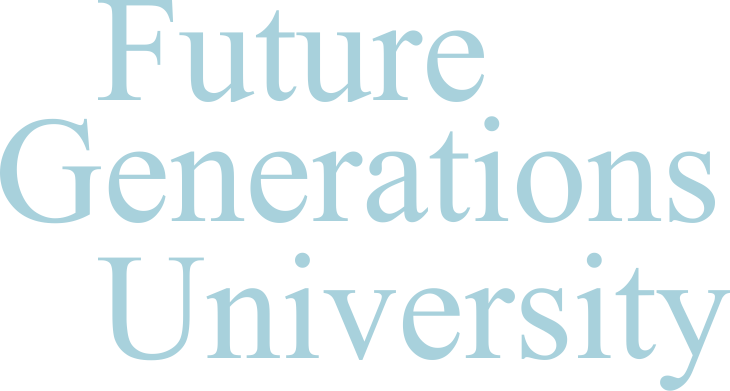Utilizing Community Strength
Through three regions in Liberia, the Community Integrated Development and Need-Based Project (CIDNEP) reached 15,000 people in seven communities. Adolphus Dupley (Class of 2015), Associate Director with Liberia’s Department of Community Services, began CIDNEP after learning the principles of SEED-SCALE.
The influential idea for him was building on local successes and understanding community capacity. The result increased community access to essential services – education, water, sanitation, health, and agriculture – in Liberia’s most densely populated regions. “We created a partnership between all parties so needs are met.” says Dupley.
Prior to enrolling in the Graduate School, Dupley ran the predecessor project to CIDNEP. It used a one-size-fits-all approach. “There was no particular attention being paid to community capacity, knowledge, and involvement,” he remarks.
The Community Integrated Development and Needs-Based Project reached more people in its first year than its predecessor ever did. More than half are women. “We have made interventions in areas of gender where for the first time in some of these communities women are now playing major leadership roles,” notes Dupley. In addition to gender equity, the project addresses underground water pollution, forest resource management, and peacebuilding.
Future Generations Researches and Promotes Social Participation in Primary Healthcare Services
The Shared Administration Program in Peru is one of the successful community change experiences that the Future Generations SEED-SCALE methodology is based on. Co-founder Dr. Carl E. Taylor provided orientation to Peru in 1994 at the request of their Minister of Health to design a new program for primary healthcare with community participation. SEED-SCALE was then in the process of development, so the Peru program was designed on the basis of SEED-SCALE principles, while also soon becoming evidence for further development of the methodology.
 |
| Meeting of members of CLAS Las Moras, the original pilot site. |
Peru is now one of the few countries with a governmental health program that features legalized, regulated, and institutionalized community participation. A 1994 government decree gave community entities collaborative responsibility and decision-making power over the management of public resources to administer primary healthcare services. Called CLAS Associations (Local Health Administration Committees), these private non-profit entities work under contract with the state, and the medical chief of a primary care facility is executive director as the public sector counterpart. The three-way partnership involves government, health services, and community.
How does social participation reflect SEED-SCALE through CLAS? When local people identify their needs instead of only central planners, it improves equity and efficiency of public spending. The watchdog role of citizens overseeing use of public resources ensures transparency and reduces misuse of funds. Citizens can exert social control when they pressure health providers to come to work on time and treat patients well, and can make decisions on purchases (equipment, maintenance, extra staff) to ensure better quality of care. Social participation makes local health and development programs more sustainable. The CLAS program scaled-up rapidly to cover 32% of all 2,700 primary healthcare facilities nationwide because of word-of-mouth from satisfied communities. Future Generations was instrumental in development of a law on CLAS approved in 2007 by the Peruvian Congress that enhanced the SCALE-Cubed policy environment.
Future Generations has played a key role over the years in conducting CLAS program research and evaluation, preparing papers for dissemination and advocacy, and providing technical support on the CLAS program. Documents on the CLAS program in Peru are available through Future Generations University’s publications library.
Lifelong Learning
“You stop learning, you start dying,” insists Ruben Puentes, Professor and Director of Partnerships at Future Generations Graduate School. His career reflects his desire to expand – as a soil scientist for a government agency, a teacher for a U.S. university, the leader of a network of researchers in transnational migration, Associate Vice President of the Rockefeller Foundation, and a part-time potato grower on his farm in Uruguay. For Puentes, life is always a classroom.
 |
|
| Puentes (center) listening to a discussion between a farmer and a local expert in Manaus, Brazil. |
Puentes’ task at the Graduate School is to strengthen the Master’s Degree in Applied Community Change curriculum along with student teaching and advising. “This is a unique opportunity to continue learning, not only from faculty colleagues but from students themselves.”
Puentes’ students appreciate his global experience that links community development, natural resources management, and agriculture. Most are practitioners themselves with diverse experiences, and their questions force Puentes to continue learning.
“Education is in the learning, not the teaching,” Puentes says. “Future Generations Graduate School is the place to be for those with a passion for learning; it is difficult to find a better place either to start or continue a lifelong learning journey.”
Voices of Future Generations: Puddles
At Future Generations, we often flip the role of teacher and student. Everyone has something they can teach someone else and everyone has something they can learn from someone else. This is the inherent truth in learning communities.
This week’s episode of Voices embodies just that. A father attempts to teach his daughter a lesson and ends up learning one instead.
Voices of Future Generations: Girls from Halifax
Racism. Stereotypes. Job security. These have been contemporary issues in Britain surrounding the influx of refugees and the Brexit vote. They are contemporary issues, but not new issues. In this week’s Voices track, girls from Halifax, England talk candidly about these issues in their own community.



